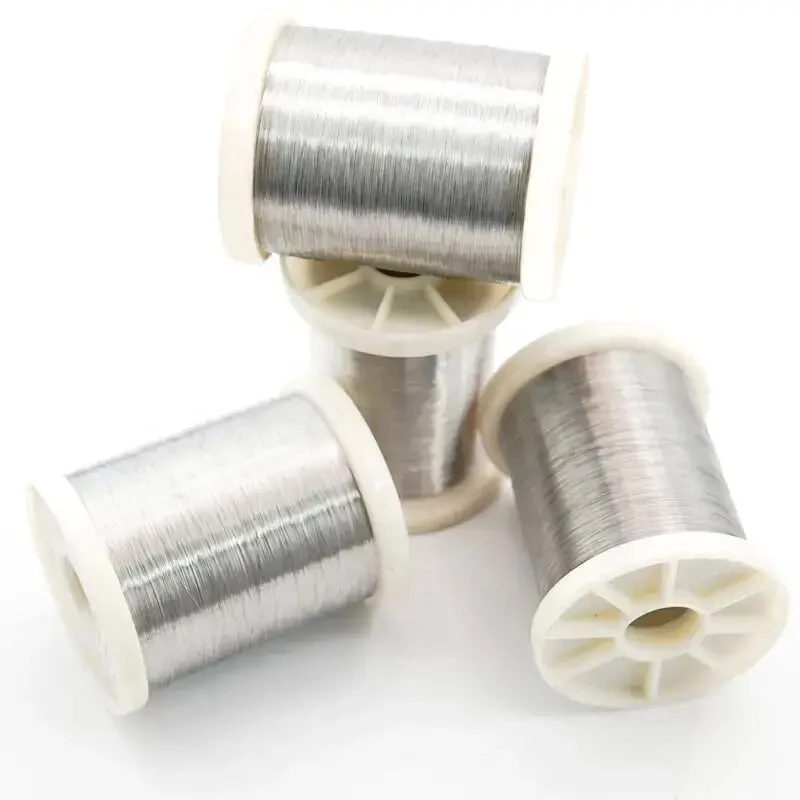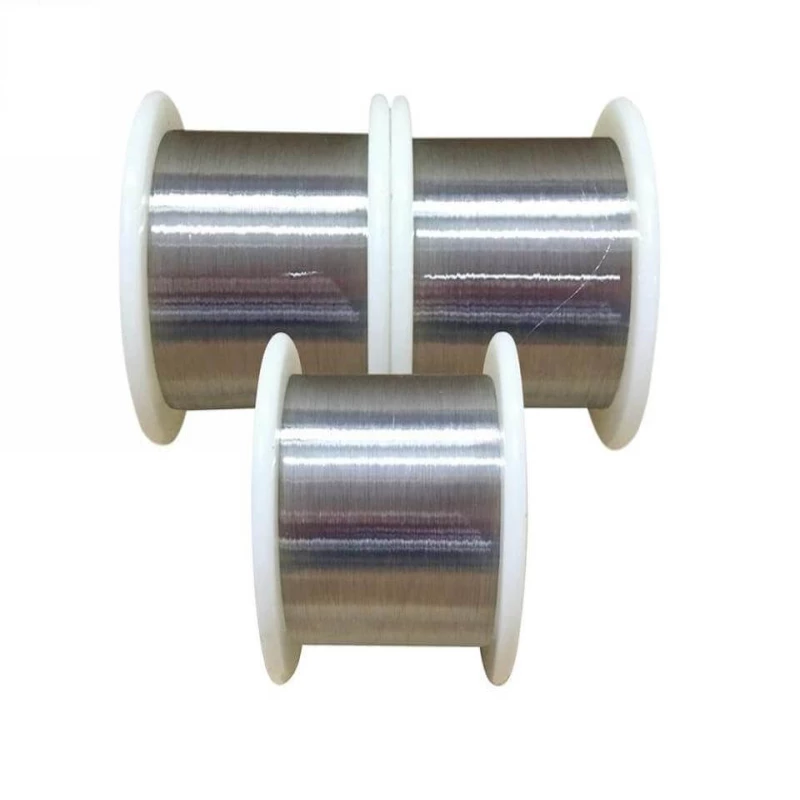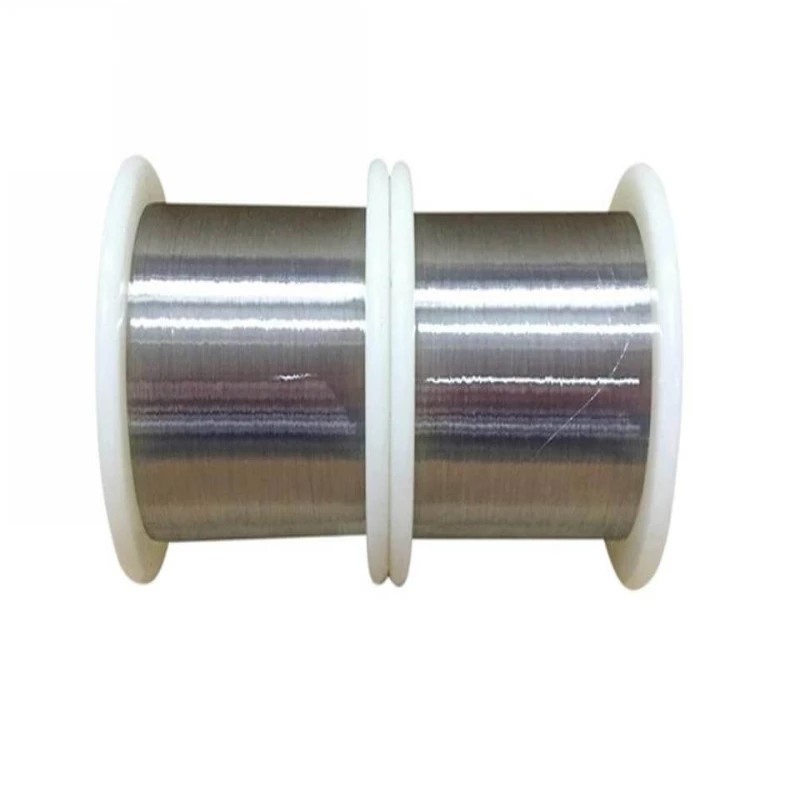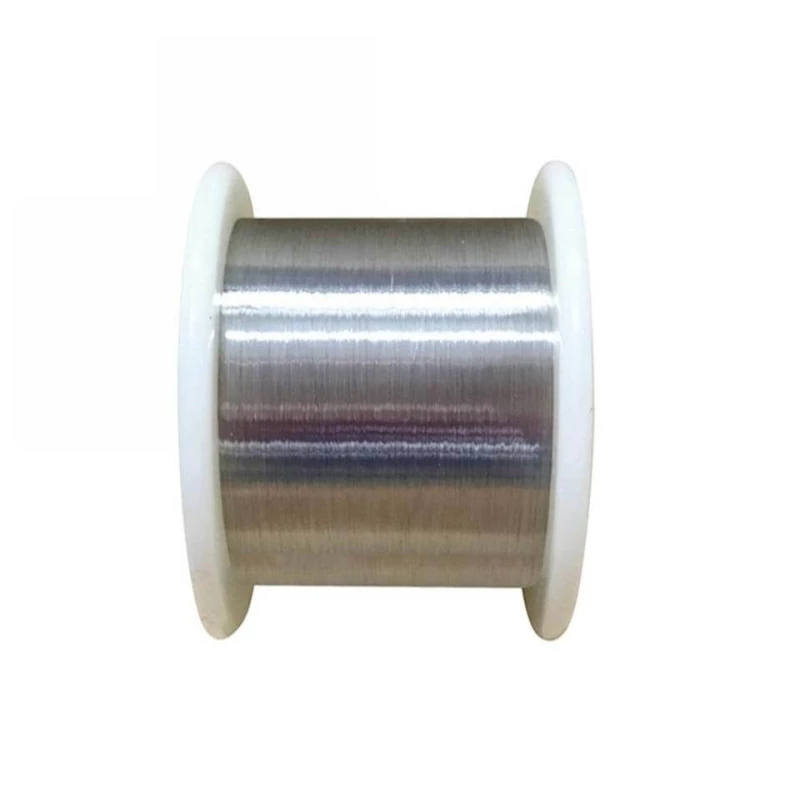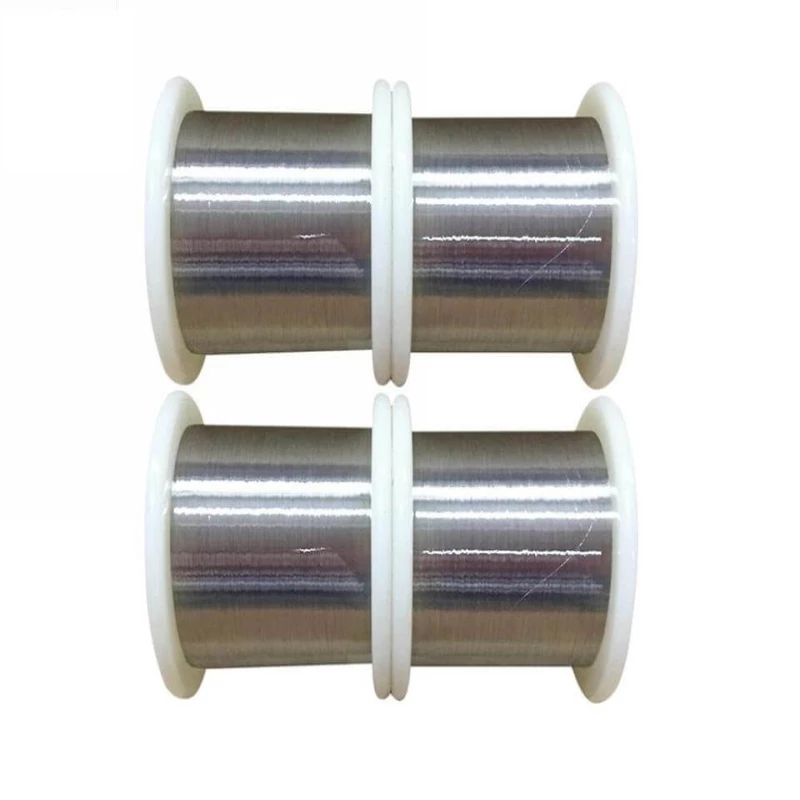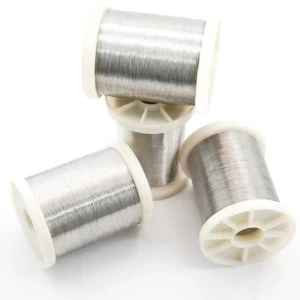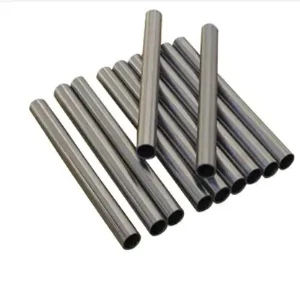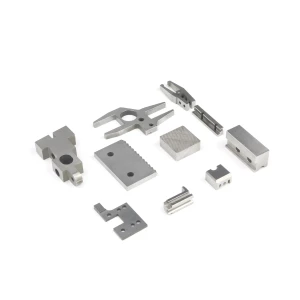Nickel Wire is a metal wire made of nickel as the main material. It has good electrical conductivity, thermal conductivity and corrosion resistance. Due to its special physical and chemical properties, nickel wire is widely used in many industrial fields.
| Grades | Nickel 200, Nickel 201, Nickel 205 |
| Standard | ASTM B164, ASTM B160, etc. |
| Straight | Dia.: 1.0mm-5.0mm ( tolerance: +/-0.05mm ) |
| Coiled | Dia.: 0.03mm-3.0mm ( tolerance: +/-0.05mm ) |
| Length | Coils or Customers’ Requests |
| Surface | Black, Pickled, Polished ( For Dia. >1mm ) |
| Packing | Standard seaworthy packages or as your requests |
| Grade | Ni+Co | As | Bi | C | Cd | Cu | Fe | Mg | Mn |
| Ni201 | ≥99,9 | ≤0,001 | ≤0,001 | ≤0,01 | ≤0,001 | ≤0,015 | ≤0,04 | ≤0,01 | ≤0,002 |
| Ni200 | ≥99,5 | ≤0,002 | ≤0,02 | ≤0,1 | ≤0,002 | ≤0,1 | ≤0,1 | ≤0,1 | ≤0,05 |
| P | Pb | S | Sb | Si | Sn | Zn | Impurity | ||
| Ni201 | ≤0,001 | ≤0,001 | ≤0,001 | ≤0,001 | ≤0,03 | ≤0,001 | ≤0,005 | ≤0,1 | |
| Ni200 | ≤0,002 | ≤0,002 | ≤0,005 | ≤0,002 | ≤0,15 | ≤0,002 | ≤0,007 | ≤0,5 |
physical properties
Conductivity: Nickel wire conducts electricity relatively well, but not as well as copper or aluminum.
Corrosion resistance: Nickel has good corrosion resistance, especially in alkaline and salt spray environments.
High temperature performance: At high temperatures, nickel wire can maintain good mechanical strength and structural stability.
Magnetism: Pure nickel is magnetic, but when formed into wire, may appear non-magnetic or weakly magnetic.
Application areas
1. Electronic equipment: used in the manufacture of resistors, inductors and other electronic components in electronic equipment.
2. Heating element: Because of its good electrical conductivity and high temperature resistance, it is often used to make heating devices, such as electric furnaces, electric heating wires, etc.
3. Battery manufacturing: used in the battery industry, especially electrode materials for nickel-cadmium batteries and nickel-metal hydride batteries.
4. Chemical equipment: Because of its corrosion resistance, it is used as a structural material for various reactors in the chemical industry.
5. Aerospace: In aerospace parts that operate in high-temperature environments, nickel wire can be used to make specific components.
6. Precision instruments: used in precision measuring equipment and sensors to take advantage of their stable physical properties.
7. Welding materials: As excellent welding materials, they are used to connect different metal parts.
Manufacturing process
The production of nickel wire usually includes the following steps:
Smelting: Smelting nickel ore into pure nickel.
Wire drawing: The nickel rod is drawn into wire rods of different diameters through a series of dies.
Heat treatment: In order to improve the flexibility and tensile strength of nickel wire, appropriate heat treatment is performed.
Surface treatment: Clean the surface of the nickel wire to remove possible oxide layers or other impurities.
Precautions
When using nickel wire, attention needs to be paid to its compatibility with different chemicals, as well as corrosion issues that may arise in specific applications. Additionally, nickel wire may not be as efficient as other more conductive materials, such as copper, in high-current applications.
The selection and use of nickel wire should be determined according to the requirements of the specific application to ensure that it not only meets the technical requirements but is also economically reasonable.
We have more categories for you. lf you can't find the products you want above,just fill in the form and tell us whatproducts you want to import from China.


